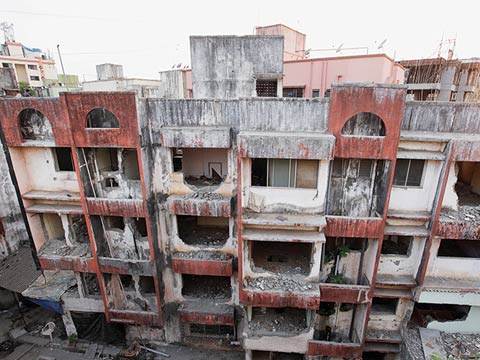Rapid urbanization worldwide means high-rise apartment buildings have sprouted on the peripheries of new megacities, such as Karachi, Delhi and Lagos.
Deborah Cowen, a professor of geography, is interested in the political lives of people who occupy these buildings. She has teamed up with Emily Paradis, a research associate at the Factor-Inwentash Faculty of Social Work, and with the National Film Board’s Emmy-winning HIGHRISE project, a multimedia documentary that explores “vertical living” in 21 global cities.
In India, the team is focusing on the illegal demolition of apartment complexes and how citizens are using digital technologies to fight back. Cowen notes that in India’s largest cities, urban renewal schemes, globalized real estate markets and institutional corruption have created a thriving but violent economy around the demolition and reconstruction of apartment towers. In many cases, authorities collude to promote builders’ financial interests at the expense of residents’ rights.
Residents of the building at left were able to stop demolition before it was completed, and several families are still living in the structure out of fear that they will lose their claims to their apartments if they leave. But it’s a scenario that will continue to brutalize India’s low-income citizens until the balance of power shifts from those who speculate on the redevelopment of urban land to those who inhabit it, says Cowen.
Watch “A Short History of the Highrise”:
Video by: The New York Times






